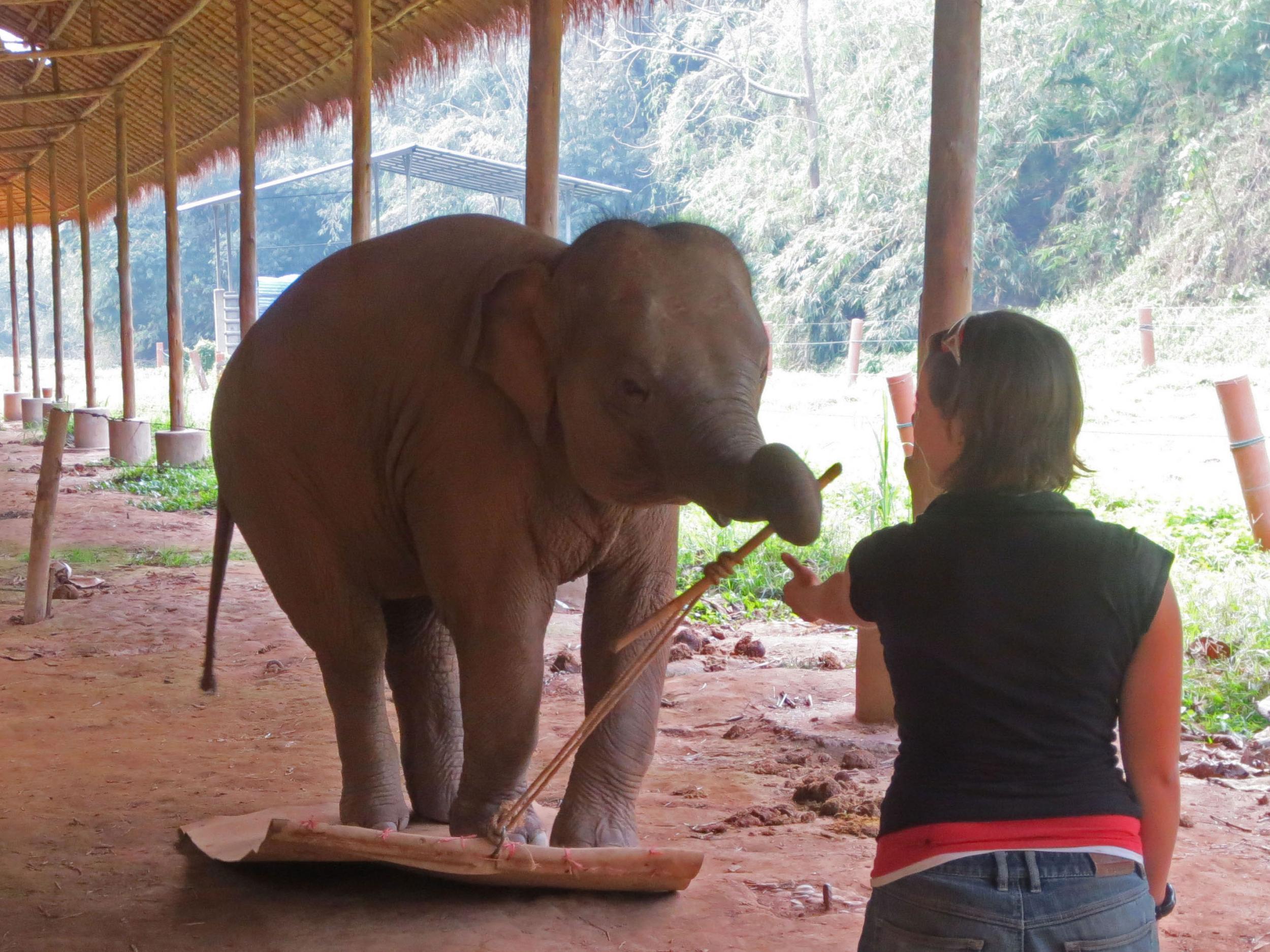Elephants pass intelligence test with ‘profound implications’ for our understanding of the species
Giant creatures show a level of self-understanding that is 'quite rare in the animal kingdom'

Elephants have passed a test of intelligence which scientists say has “profound” implications for our understanding of their mental capabilities. They were found to be capable of performing a task that showed they have a level of self-understanding that is rare in the animal world and defeats humans until they are about two years old.
Elephants have already shown they can recognise themselves in a mirror, something that is thought to be relatively rare among animals.
The new test, which was described as “deceptively simple”, involved picking up a stick and handing it to a researcher.
But sometimes the stick was tied to a mat on which the elephant had to stand to reach it. This meant they had to realise their own body was preventing them from passing on the stick and get off the mat in order to complete the task.
The scientists behind the study said animals capable of this kind of behaviour may also be better at empathising and be able to consider someone else’s perspective.
And that could have implications for the way conflicts between humans and elephants should be handled in places where the two species are competing for land and resources.

Dr Josh Plotnik, a visiting researcher at Cambridge University, said: “This is a deceptively simple test, but its implications are quite profound.”
“The elephants understood that their bodies were getting in the way, so they stepped aside to enable themselves to complete the task. In a similar test, this is something that young children are unable to understand until they are about two years old.
“This implies that elephants may be capable of recognising themselves as separate from objects or their environment. This means that they may have a level of self-understanding, coupled with their passing of the mirror test, which is quite rare in the animal kingdom.”
The test was an adapted version of one used on human children. In that test they are asked to push a trolley attached to a matt, which they normally stand on as they approach the trolley.
Only when they reach the age of about two do the humans realise they have to get off the matt in order for the trolley to move.
Twelve female elephants aged from four to 40, who live at the Anantara Golden Triangle camp in Chiang Rai, Thailand, took part in the tests.
During the test, their handlers, or mahouts, instructed them to walk onto the mat and then give the stick to the researcher using the instructions ‘go’, ‘pick up’ and ‘come’.
The elephants stepped off the mat to pass the stick an average of about 87 per cent of the time, compared to just six per cent during a control test in which the stick was not attached to the mat.
A paper about the research in the journal Scientific Reports conceded the elephants may have learnt what was required during the tests.
But, considering the first time the elephants were confronted with the task, the success rate was still high.
“All elephants succeeded at least once in the first session of the test condition with eight out of 12 elephants successfully getting off the mat and exchanging the stick in at least 11 of 12 test trials and six subjects showing success in their first trial,” the paper said.
Rachel Dale, a PhD student at the University of Veterinary Medicine in Vienna, who took part in the research, said the tests were designed to show the elephants’ level of “body awareness”.
“Elephants are well regarded as one of the most intelligent animals on the planet, but we still need more empirical, scientific evidence to support this belief,” she said. "We know, for example, that they are capable of thoughtful cooperation and empathy, and are able to recognise themselves in a mirror. These abilities are highly unusual in animals and very rare indeed in non-primates.”
The other animals to have shown self-awareness are great apes, dolphins and magpies.
Dr Plotnik, founder of charity Think Elephants International, said understanding how elephants think would help conservation efforts. “The more we can understand about elephants’ behaviour, the more we can understand what their needs are, how they think and the strains they face in their social relationships,” he said.
“This will help us if we are going to try to come up with viable long term solutions to the problems that these animals face in the wild, especially those that bring them into regular conflict with humans.”
Join our commenting forum
Join thought-provoking conversations, follow other Independent readers and see their replies
Comments
Bookmark popover
Removed from bookmarks